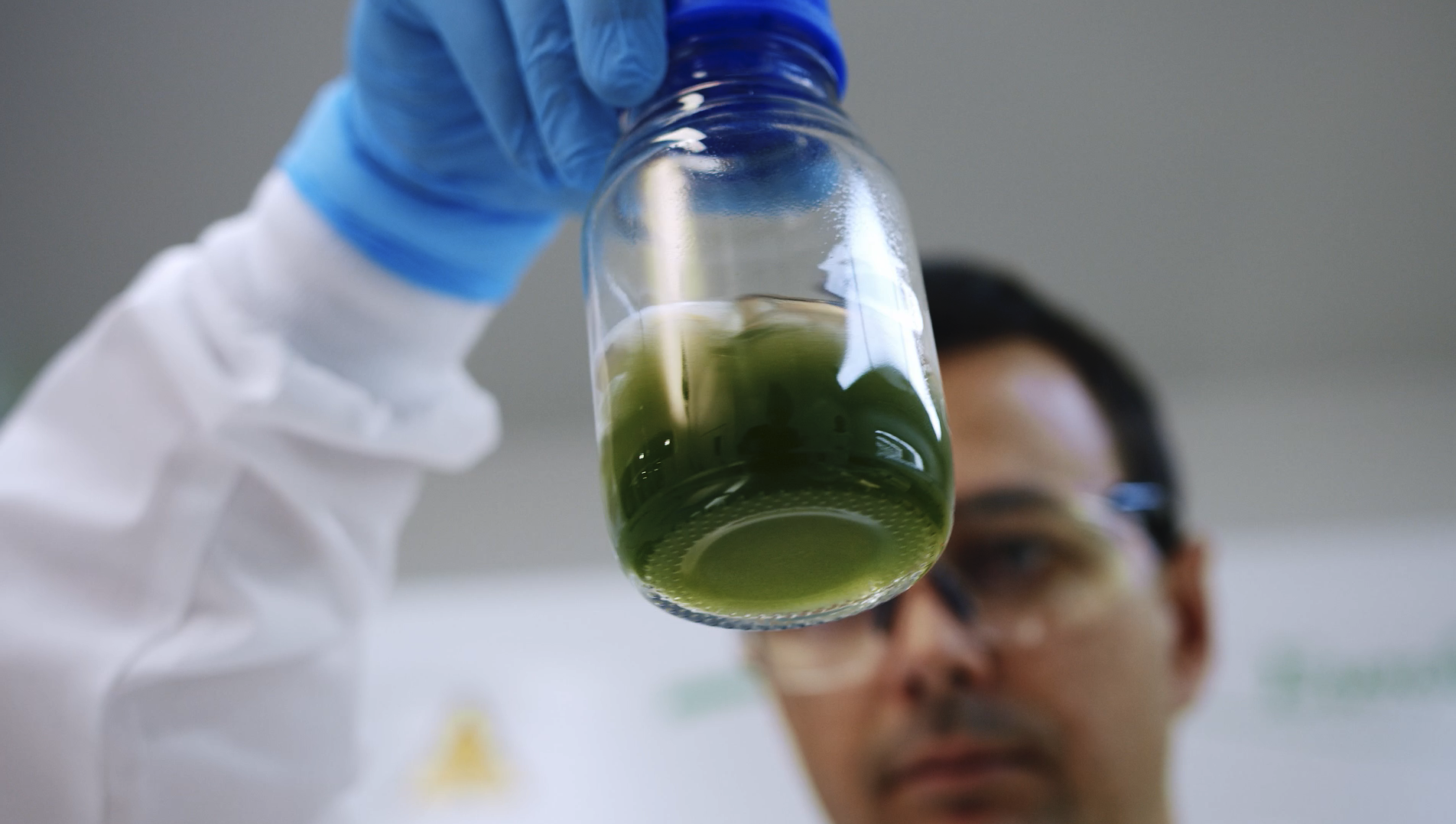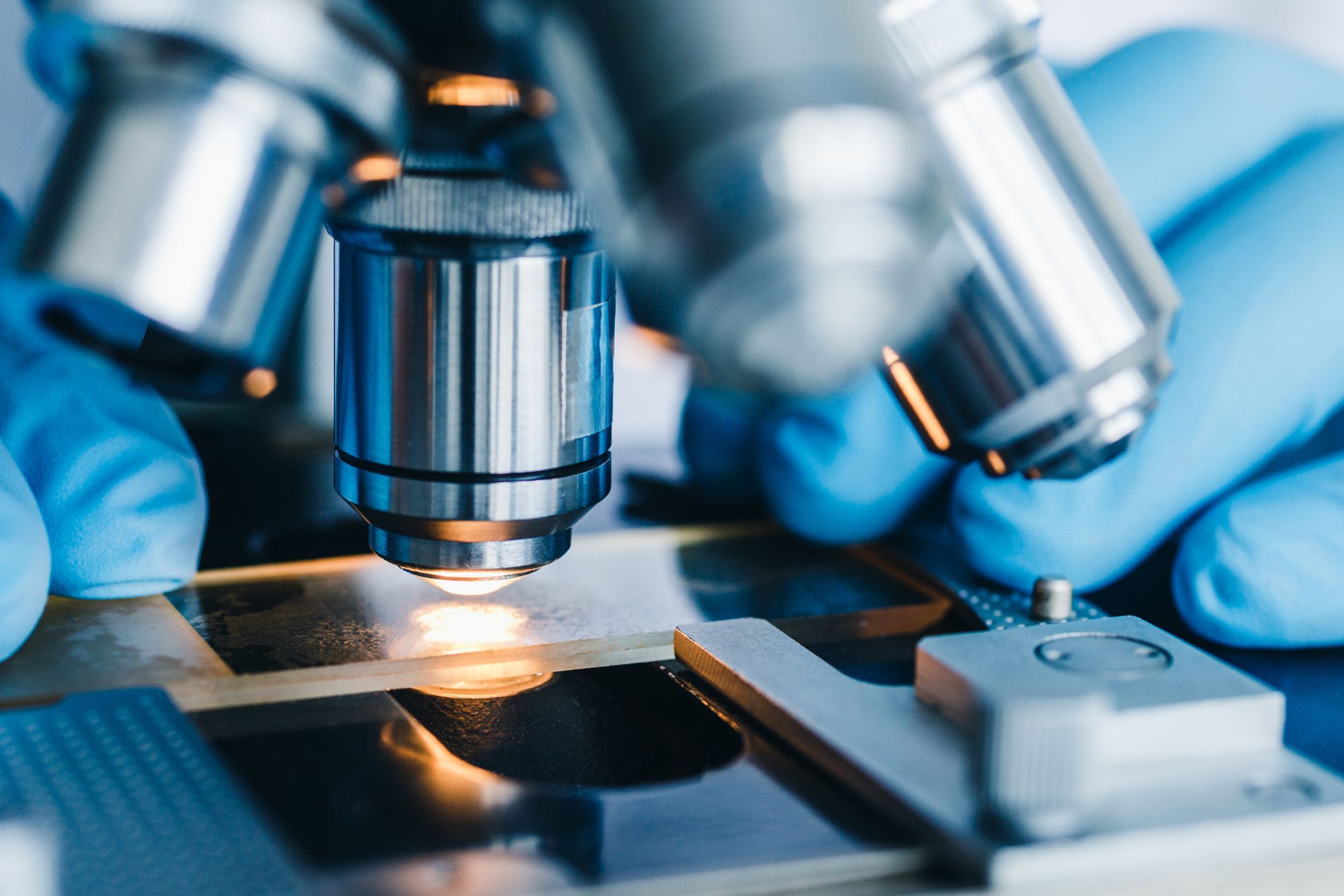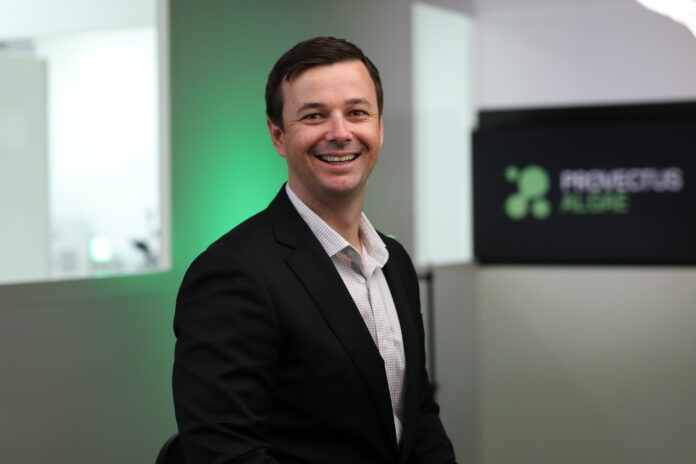The founder of a local company that is developing a plant-based “meat” that looks and cooks like the red-blooded alternative says there is the opportunity for the region to become a leader in the biotech industry.
As the Australian marine bioproducts industry heads for $1 billion in annual turnover by 2030, a bio-manufactured pigment dreamed up by Provectus Algae founder Nusqe Spanton is the latest potential ingredient for sustainable food.
The uninspiring appearance – on the shelf and when cooked – is one of the biggest problems for alternative protein companies that want more people to eat sustainably.
“The vast majority of red colourings available on the market don’t actually change colour when you cook them,” Mr Spanton said.
“In order to make it look and feel and taste like meat does, we had to develop a product that specifically mimics blood.”
The company has been based at Noosa since 2020 and has about 35 full- or part-time staff working out of its Noosaville facility.
“Currently, most of our operations are based in Noosa, including research and development, engineering, software development, production, business administration and beyond,” Mr Spanton said.

He believes there is an opportunity for the region to become a leader in biotech industries.
“For one, the local government played a big part in our move to Noosa. We found that Noosa’s government is exceptionally receptive to high-tech business, and their willingness to support our work helped entice us to move here. We’ve been quite fortunate in that regard,” Mr Spanton said.
“Separately, there’s a lot of appeal to building a world-class company in such an idyllic area like Noosa. Liking where you work is important, and it’s hard to beat the many natural advantages of the region.
“I think there’s a real opportunity for the Sunshine Coast to become a biotech hub. Provectus Algae is proud to help lead the efforts to develop the area’s life-science economy.”
Provectus is growing the microalgae pigment at the Noosa facility as global food manufacturers compete for health-conscious consumers.
“It not only has to look the part, when you cook it there’s a particular emotional reaction that happens, not only in the taste and flavour and smell that occurs, but also in cooking through to a grey-brown colour the same as natural meat,” he said.
“That’s a very difficult performance characteristic to mimic – that’s what we set out to solve.”

The algae can perform in a way that no other option can, according to the aquaculture expert, who uses precision photosynthesis to develop the natural product with no genetic modification.
“That would also drive a significant environmental and climate impact, if we were able to increase the overall consumption of plant-based burgers or plant-based meats,” Mr Spanton said.
The single-cell algae grow by absorbing light and consuming carbon dioxide, and are among the world’s oldest microbes.
Mr Spanton was awarded $525,000 last month by a federal fund and is also attracting private investors to meet international demand for the product.
Provectus is one of the final six recipients from the Advanced Manufacturing Growth Centre’s $30 million commercialisation fund that has fast-tracked more than 60 Australian start-ups across the economy.
Help keep independent and fair Sunshine Coast news coming by subscribing to our free daily news feed. All it requires is your name and email. See SUBSCRIBE at the top of this article.





